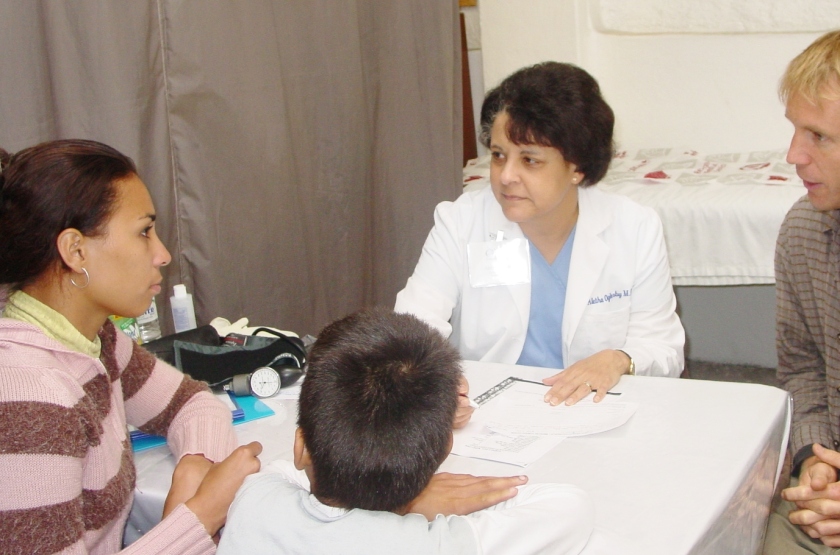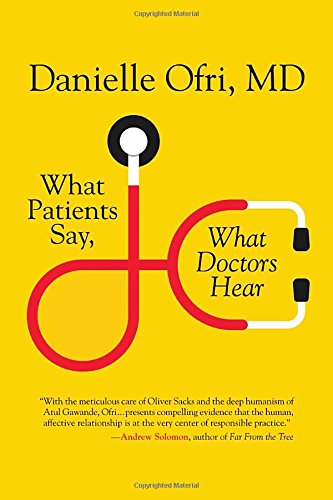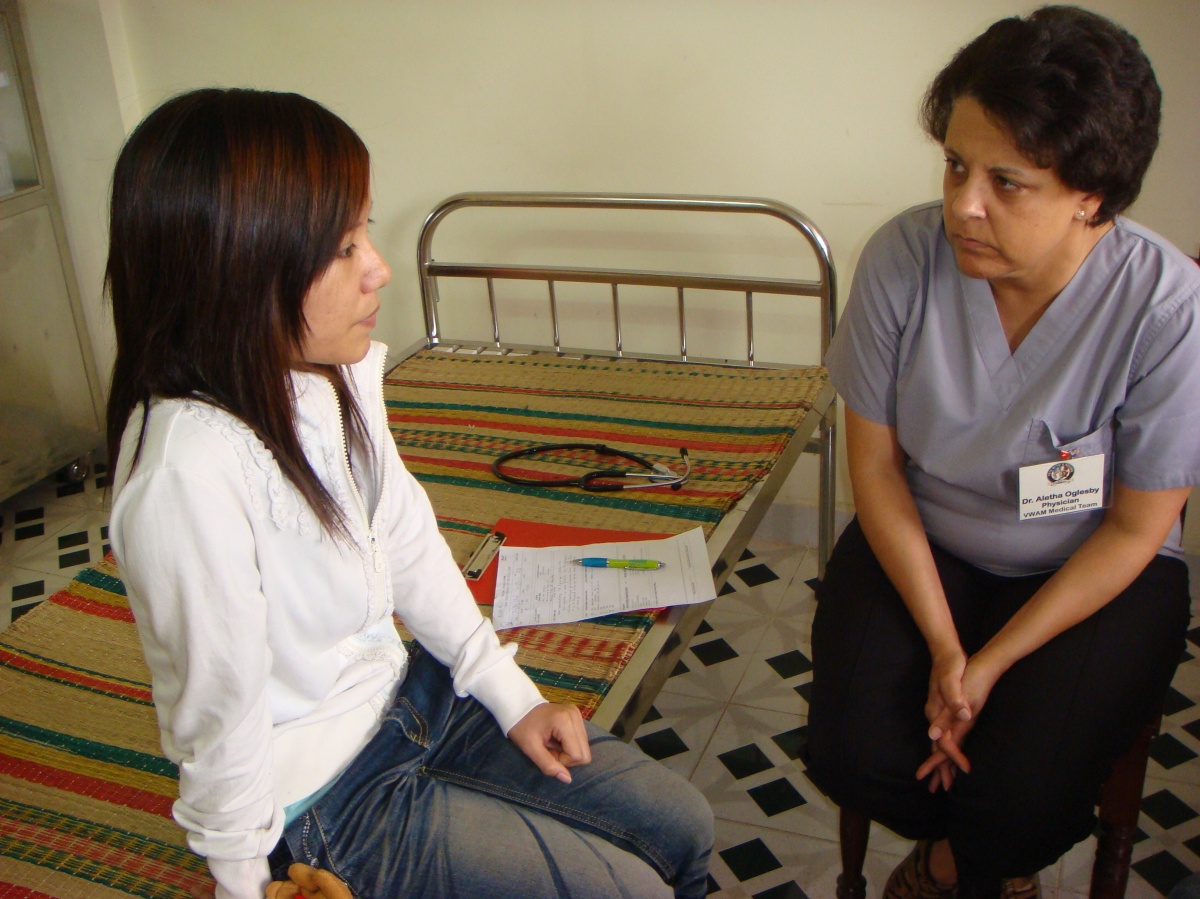I blog about healthcare communication because you need to understand your doctor better and we doctors need to understand our patients’ expectations, concerns and obstacles.
Physicians should use clear understandable plain language with patients. Patients should also be clear and specific when they talk to their doctor.
You may think your doctor knows exactly what you mean, but sometimes we are left trying to read between the lines of what you tell us.

You know it’s important to tell us details of your symptoms, medical history, family history, habits, and other medical facts. But besides medical information about you , we need to know
Your expectations about your care,
Your concerns about your care,
Your obstacles to getting care,
You may wonder, won’t or shouldn’t my doctor ask me theses questions? Sure, we can ask and probably will, but by volunteering it , you start dialogue that gets you and your doctor communicating effectively much faster. Your doctor knows about disease, but you as the patient know the experience of the illness much better.
Let me illustrate by giving you some examples. These are all statements patients say to me in my daily practice. The original statements aren’t bad or wrong, but by rephrasing to add some additional detail they give your doctor valuable information that will help provide you the best care possible.
The underlined words can be substituted for others listed in parentheses. The exact words aren’t as important as the message they convey.
Hello doctor, I’m here because I want my thyroid checked.
(substitute heart, lungs, cholesterol, blood sugar, kidneys, etc.)
Instead try-
Hello doctor, I’m tired a lot, and wondered if it might be a thyroid problem or something else. What testing would help us find out what’s wrong with me?
It’s better not to limit your doctor to checking just one thing, when there are many possible explanations for your symptoms. You expect a thyroid check, but you’re open to other possibilities.

Doctor, I feel terrible and think I have pneumonia. The last time I felt like this the doctor said it was pneumonia, so it must be that again.
( sub kidney infection, strep throat, sinus infection)
But if you say this
Doctor, I feel so sick. This illness is similar to when I was diagnosed with pneumonia and I’m afraid I have it again. I am concerned it’s pneumonia again so I’m here to find out what is wrong, as I realize it may be something else.
You’ve told the doctor your concern about pneumonia but you’re not trying to diagnose yourself.
I have a family history of cancer so I want to have a mammogram.
(sub any other cancer, heart disease, stroke and other tests)
That’s good, but this is better.
Doctor, I’m concerned about breast cancer as it runs in my family. My grandmother was diagnosed at age 45 and now my sister has been, and she is 40. Do I need a mammogram or any other testing now?
Knowing who in your family had a disease and at what ages helps the doctor make an accurate recommendation. It also tells your doctor this may be an emotional issue (concern) for you.

I need an antibiotic (anti-inflammatory, muscle relaxer, steroid, shot ) for this; I know because my previous doctor always gave me one for this.
Please try this instead:
When I had this before my doctor prescribed an antibiotic; I wonder if that would be appropriate this time?
This tells the doctor your expectation, but also that you are open to different advice/recommendation. (and avoid getting a medication you don’t need.)

Will my insurance pay for this? How much will this cost me? Is this an expensive drug?
Patients may expect us to know about insurance and cost, but often we don’t. We can work with you on financial issues if we know more about your obstacle. Try asking-
I need to find out if this is covered by my insurance. Can someone in your office look that up, or help me find out?
I’ve had a lot of medical bills this year that have stretched my budget. I will need to find out what my out of pocket cost will be before scheduling this test. Can your office help me with that?
If there is a generic version of this drug that will work just as well, I would like it, to minimize my out of pocket cost. If not, is there another alternative?
Is this drug safe? (effective, good, best, dangerous, harmful)
Few things are 100% safe. But what we can discuss with you is –
What are the risks and side effects of this drug? Is the benefit I get from the drug worth the risks? Are there alternatives that would be effective and less risky?
We always should be concerned about drug use, and safety isn’t the only issue. Don’t hesitate to ask questions.

How long will I be off work? When can I go back to work?
Here’s what your doctor needs to know –
My job requires me to stand and walk for several hours?
(sit and type; talk on the telephone; drive long distances in my car)
And here’s what you need to ask:
How soon should I expect my stamina to return so I can work part time? Full time?
When can I safely work without interfering with my recovery?
What can I do to hasten my recovery so I can return to work sooner?
Both you and your employer, need to know when it is safe to return to work. We have to balance health concerns with your financial concerns and what is expected and allowed by your employer and the law.
If you are clear with your concerns and obstacles and flexible in your expectations it will be easier for your doctor to make the right decision.
These are just a few examples. I’m sure you can think of others.
Whenever you have a need to consult a physician, think ahead of what your
expectations, concerns and obstacles are before you make the visit so you’ll be
prepared to share .
Here are more tips on talking with your doctor-
How to talk to your doctor to improve your medical care
How to tell your doctor what’s wrong with you.
I invite you to follow this blog as we explore the HEART of health together.
Dr. Danielle Ofri’s book What Patients Say, What Doctors Hear,
details the reasons doctors and patients don’t communicate well
and offers ways to improve our interaction.

(this is an affiliate link)


This has SUCH good information. Sharing!
LikeLike
Thanks for reading and sharing; glad you found it helpful.
LikeLike
Wow! Such simple changes to the questions, but SO much better! Saving this!
LikeLike
Thank you Diane, I’m glad you find them helpful. I hope they work for you. Thanks for taking the time to read my blog.
LikeLike